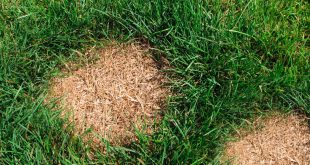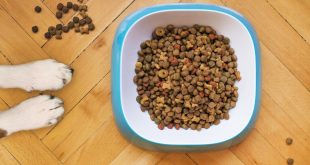This post may contain affiliate links. Please read our disclosure.
When your furry friend gets older, they may need a little extra TLC to stay healthy and full of life. But one of the most important things you can do is pick the right food for them! With so many options on the market, it can be hard to know which dog food is best for senior dogs. That’s why we’ve done all the research for you and rounded up some of our top picks for keeping your pup in tip-top shape! Let’s dive into these delicious dishes that’ll keep Fido feeling young and energetic no matter their age.
Article Contents
Benefits of Healthy Senior Dog Food
As our beloved pooches get older, they need a little extra help to stay healthy and happy. Healthy senior dog food is specifically formulated for the needs of aging dogs, giving them the nutrition they need to thrive in their golden years.
One of the main benefits of feeding your pup a healthy senior diet is that it helps keep their joints strong and limber. Senior diets are tailored to include ingredients that promote joint health like glucosamine, chondroitin sulfate and omega-3 fatty acids which have all been proven to be beneficial for canine joint health. Additionally, these diets typically also contain moderate levels of sodium which can aid in reducing inflammation associated with arthritis or other age-related joint issues.
In addition to providing support for joints, healthy senior dog food contains balanced amounts of vitamins and minerals necessary for proper organ functioning as well as lean proteins that will help improve muscle mass while not adding too much unnecessary fat content into your pup’s diet. Many special formulas also include antioxidants such as Vitamin E which can boost immune system function — an important consideration since many elderly pooches become more susceptible to illness due to weakened immunity systems over time.
Finally, feeding your senior pup a specialized diet can also provide additional mental stimulation since many brands incorporate natural sources of DHA which is known to promote brain health by stimulating neurological pathways within the brain itself – helping your furry friend stay sharp even during his later years!
Benefits:
• Contains ingredients specificially tailored towards promoting canine joint health & flexibility such as glucosamine & chondroitin sulfate
• Lower sodium content helps reduce inflammation associated with arthritis & other age-related joint issues
• Balanced amountsof vitamins & minerals necessary for proper organ functioning
• Lean proteins improve muscle mass without adding excessive fat
• Includes antioxidants like Vitamin E which boost immune system funtion
• Natural sources os DHA stimulate neurological pathways in brain
What is the Healthiest Dog Food for Senior Dogs
As our beloved canine companions reach the twilight of their lives, it’s important to review and adjust their diets accordingly. Senior dogs require different nutritional needs than puppies or adult dogs, so providing them with a food that is tailored specifically for them is essential in ensuring they stay as healthy and strong as possible.
The ideal senior dog food should be rich in antioxidants, like blueberries and cranberries which help support overall health. It should also contain high quality proteins like lean meats such as turkey or chicken, fish meal, egg products and other sources of animal-based protein to ensure your pup gets all the necessary amino acids needed for optimum nutrition. Additionally, look out for foods enriched with omega fatty acids – these will help keep skin and coat looking shiny while supporting joint health too. Fiber is another key ingredient; it can assist digestion and regulate cholesterol levels whilst providing an excellent source of energy from carbohydrates – just make sure there are no artificial fillers present!
When selecting the best food for your senior pooch you should also consider any special dietary requirements – some brands offer grain-free options which can suit those pups who suffer from allergies or sensitivities better than standard formulas. Finally don’t forget about taste; after all we want our furry friends to enjoy every bite! High quality ingredients plus natural flavors like beef liver are great at making meals more appetizing so your pup eats up every last morsel with gusto!
Ingredients to Look for in Senior Dog Food
When shopping for the best food to feed your senior dog, it’s important to look out for specific ingredients that will help keep them healthy and active as they age. The main ingredients in a good quality senior diet should include protein, carbohydrates for energy, essential fatty acids and dietary fiber.
Protein is an essential nutrient for all dogs but especially seniors who need more of it than younger pups. Look out for sources like chicken or salmon which are easy to digest and provide amino acids that aid muscle development. Carbohydrates such as oats are great sources of energy to fuel their daily needs while also providing some dietary fiber that supports digestive health. Prebiotics found in whole grains can also be beneficial in supporting gut health which is especially important when aging slows down digestion processes.
Essential fatty acids must be supplied through the diet because they cannot be produced within the body so these have become increasingly popular in senior formulas where you’ll find Omega 3s from fish oil along with other oils such as coconut oil and olive oil used to promote joint mobility, coat condition and overall well-being of your pet. Vitamins A & E provide antioxidants that help support their immune system against inflammation caused by oxidative stress associated with aging too! Finally minerals including zinc, copper and iron play an important role in metabolism too so check labels carefully when selecting a formula tailored specifically towards older dogs’ nutritional needs!
Nutritional Requirements of Senior Dogs
As our canine companions age, their nutritional requirements change. Senior dogs have different dietary needs than puppies and adult dogs because of the physical changes associated with aging. To ensure that your senior dog remains healthy during his golden years, it is important to understand his specific nutritional needs.
Senior dogs require more nutrition in order to maintain their health as they age; however, these increased levels should not lead to weight gain in older animals. The most essential nutrients for a senior dog include protein, fat and carbohydrates which provide energy and help keep him strong and active. Additionally, calcium-rich foods are beneficial for maintaining healthy bones while omega-3 fats are beneficial for joint health. It’s also important to feed a diet rich in antioxidants such as vitamins A & E which can help protect against cell damage caused by free radicals in the body.
A balanced diet that meets all of your senior’s dietary needs is key when it comes to keeping them happy and healthy over time. As always you should consult your veterinarian before making any significant changes to your pet’s diet or introducing any new supplements into their daily routine so that you can be sure that he is getting everything he needs nutritionally speaking!
• Provide high quality protein sources: Lean meats like chicken or turkey breast are great sources of lean proteins suitable for seniors
• Increase fatty acids: Omega 3 fatty acids found in fish oil support joint health
• Feed antioxidant rich foods: Vitamin A & E packed fruits like berries provide protection from harmful free radicals
• Include calcium rich foods: Dairy products like yogurt provide essential minerals needed for bone strength
Feeding Guidelines for Elderly Dogs
Older dogs have special dietary needs that should be taken into consideration when deciding on what type of food to feed them. As they age, they become less active and their metabolisms slow down, which means they need fewer calories than puppies or adult dogs. They may also be more prone to certain health issues, such as diabetes or kidney disease, so it is important to choose a diet specifically tailored for senior pets.
To ensure your elderly pup gets the proper amount and type of nutrition, follow these feeding guidelines:
– Monitor your dog’s weight – if he has gained too much weight it can lead to joint pain and other medical issues. If he has lost too much weight then you will want to increase his caloric intake by switching him over to a higher calorie formula for seniors.
– Avoid foods with fillers – look for recipes made from whole ingredients like lean proteins and complex carbohydrates that provide adequate nutrition without excessive fat or sugar content
– Choose formulas designed specifically for older dogs – these contain lower levels of fat and sodium while providing essential vitamins & minerals needed by aging animals
– Feed smaller meals throughout the day rather than one large meal – this allows their bodies time process the nutrients in an easier manner
– Provide plenty of fresh water at all times – dehydration can cause serious health complications in elderly pets
Common Health Issues in Older Canines
As our canine companions age, they can develop a range of health issues that can impact their quality of life. As responsible owners, we need to be aware of the risks and take proactive steps to keep our furry friends healthy and happy as they enter their golden years.
The most common health ailments in senior dogs include joint pain and arthritis, kidney disease, heart conditions, diabetes, cancer, vision problems and dental disease. Joint pain is one of the first signs that your pet may be aging; it’s important to pay attention if you notice any limping or stiffness when they move around. Regular exercise routines will help strengthen muscles while keeping joints flexible – this is especially important for breeds prone to hip dysplasia or elbow dysplasia.
Kidney disease tends to present itself more often in older dogs due to a decrease in organ function over time – symptoms can include excessive thirst and urination as well as weight loss despite eating regularly. High-quality food with appropriate amounts of protein are essential for maintaining healthy kidneys; talk to your vet about which food would best suit your dog’s needs given their current condition.
Heart diseases such as congestive heart failure occur more frequently with older dogs due the weakening vessels that carry blood throughout the body; look out for laboured breathing during physical activities or restlessness at night when trying to sleep – these could indicate something more serious than just old age! Diabetes is another potential concern since decreased activity levels lead increased sugar production in the body; regular urinary tests should suffice here but always consult a professional if anything looks off!
Finally: cancer affects all ages but becomes increasingly likely with age due weakened immune systems; some types may require surgery so it’s best catch them early on through regular checkups with your veterinarian! Vision problems are also quite common amongst seniors so don’t forget get those eyes checked too — cloudy pupils are usually an indication something isn’t quite right there either! Plus: dental hygiene becomes even more critical later in life because plaque buildup increases risk other illnesses like gum infections & periodontal diseases… brushing teeth daily recommended not only prevent bad breath but also maintain overall good oral health : )
How to Choose the Best Dog Food for Your Senior Pet
When your pooch reaches the golden years, it’s time to adjust their diet accordingly. The right food can help keep them feeling vibrant and healthy no matter how old they get.
While younger pups may be able to handle a wide variety of foods, seniors need something that is easier for their bodies to process since their digestive systems are often slower than in earlier years. Look for dog food specially formulated with senior pet nutrition needs in mind. It should have quality ingredients like protein-rich sources such as fish, poultry or lean meat, carbohydrates and fiber from whole grains like brown rice or oats, fruits and vegetables high in vitamins and minerals, plus fatty acids like Omega 3s for healthy skin and coat. Avoid any dog food that includes by-products or fillers – these are generally low quality ingredients that don’t offer much nutritional value but can cause digestive issues over time.
In addition to choosing the best type of food for your pup’s age group, consider what form of kibble works best too – dry kibble is often easiest on aging teeth but soft wet foods tend to be more palatable for older dogs so try both options if you’re not sure which one your pup prefers! If weight gain has been an issue with your senior pet then look at lower calorie formulas; however make sure there are still enough essential nutrients included so they stay healthy even while eating fewer calories overall. Another option could be adding nutrient supplements into meals – consult with a veterinarian before doing this though as some supplements might interact negatively with certain medications being taken by elderly pets.
Wrap up!
In conclusion, senior dog food is essential for healthy aging in canines. It is important to know the nutritional requirements of your pet, as well as their individual dietary needs. When choosing a food for your elderly canine companion, look for high-quality ingredients such as omega fatty acids and glucosamine to support joint health and digestion. Additionally, consider transitioning from puppy to adult and then senior dog food in order to best meet the changing needs of your pup over time. With these tips in mind you’ll be able to select the perfect blend that will keep your beloved pup happy and healthy throughout their golden years!
FAQ
what is the healthiest dog food for senior dogs?
The healthiest dog food for senior dogs is one that is high in protein and low in fat, with added vitamins, minerals and antioxidants. It should contain no artificial flavors or preservatives. For a higher quality diet, look for foods labeled as “complete and balanced” by the Association of American Feed Control Officials (AAFCO).
what are the best ways to keep my senior dog healthy?
To ensure optimal health for your senior dog, provide them with regular exercise, mental stimulation such as games or walks around the neighborhood. Additionally make sure they receive routine check ups from their veterinarian including vaccinations when needed. Senior diets should also be tailored to their specific needs depending on age and activity level. Provide plenty of fresh water at all times and supplement their diet with omega-3 fatty acids which can help reduce joint inflammation.
should i give my senior pup special treats?
Yes! Special treats designed specifically for seniors can be beneficial in providing additional nutrition while also helping to maintain dental hygiene due to their softer texture which makes it easier for older teeth to chew through compared to harder treats like kibble or bones. Ensure these treats are low in calories yet rich in vitamins, minerals and other nutrients important for aging pets’ wellbeing.
how often should i take my elderly pet outside?
It depends largely on your individual pet’s energy levels – an active elderly pooch may still enjoy daily outings whereas more sedentary breeds might find twice-weekly walks enough activity. Use common sense when taking your elder companion outdoors; if it’s raining heavily or very hot out there then avoid overexerting them during these conditions – pay attention to any signs of discomfort such as panting excessively or limping after long periods of walking too far away from home base!
is there anything else i should consider when caring for an old canine?
When caring for an elderly canine friend you must remember that prevention is key: Regular visits to the vet will allow any potential problems early detection before they become serious issues down the line; providing good quality food tailored towards seniors will give them greater overall vitality & longevity; last but not least lots of love & companionship goes a long way towards ensuring happy life full years ahead!
 Petnile Comprehensive Pet Care Guides
Petnile Comprehensive Pet Care Guides



